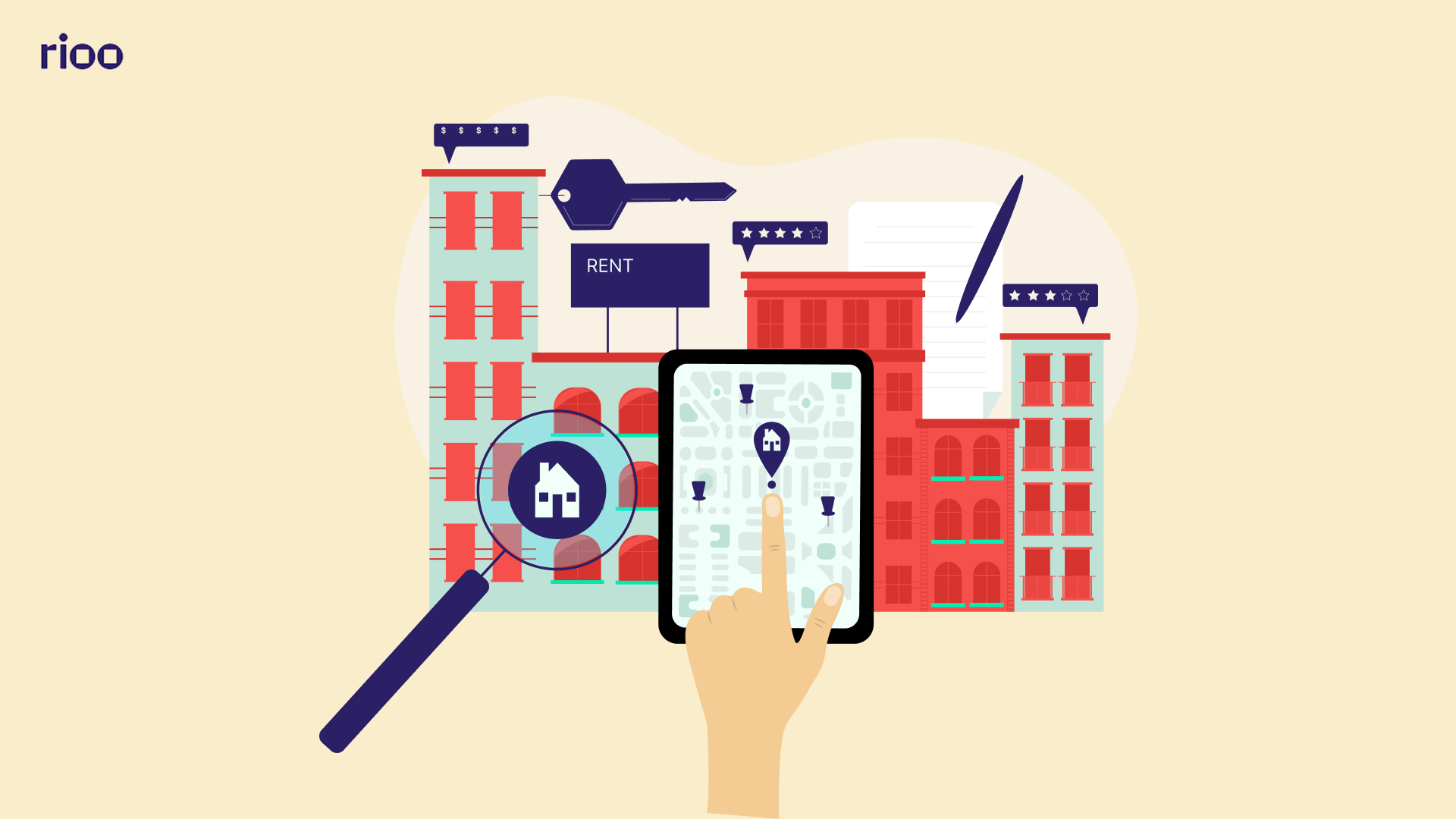The property management industry is going through a noticeable shift. From how rent is collected to how tenants are supported, almost every part of the job is being influenced by technology and changing expectations.
If you're in the property business, managing a few units or an entire portfolio, keeping up with where things are headed in 2025 is more important than ever.
Here are a few numbers that show just how much things are changing:
-
68% of property managers in North America now use property management software in their daily operations.
-
65% of companies have adopted AI-driven tenant screening tools to improve efficiency.
In this blog, you’ll get a clear view of the trends shaping the property management industry in 2025 and discover what they mean for your operations and strategy.
TLDR
-
AI and automation are transforming property management by improving efficiency and reducing errors.
-
Sustainability and energy-efficient upgrades attract tenants and lower operating costs.
-
PropTech tools like online payments and virtual tours boost productivity and tenant satisfaction.
-
Flexible office spaces are in higher demand due to remote and hybrid work trends.
-
Data-driven decisions and smart technologies are key to staying competitive in 2025.
Key Trends Shaping the Property Management Industry in 2025
As you manage rental properties or invest in real estate, staying informed about industry trends helps you make smarter decisions.
The property management landscape is shifting due to economic, technological, and social factors. Here’s what you should know for 2025, backed by reliable data and insights.
1. The Impact of AI and Automation on Your Property Management
AI and automation are transforming how you manage properties, driving better decisions and smoother operations. Here’s how:
What AI brings to your workflow:
-
Predictive Analytics: AI forecasts inventory needs using historical data, helping you avoid excess stock or supply shortages.
-
Automated Reordering: Smart systems trigger orders automatically, so essentials are always stocked without your attention.
-
Smart Inventory Classification: Streamlines tracking across multiple properties, saving time and reducing mistakes.
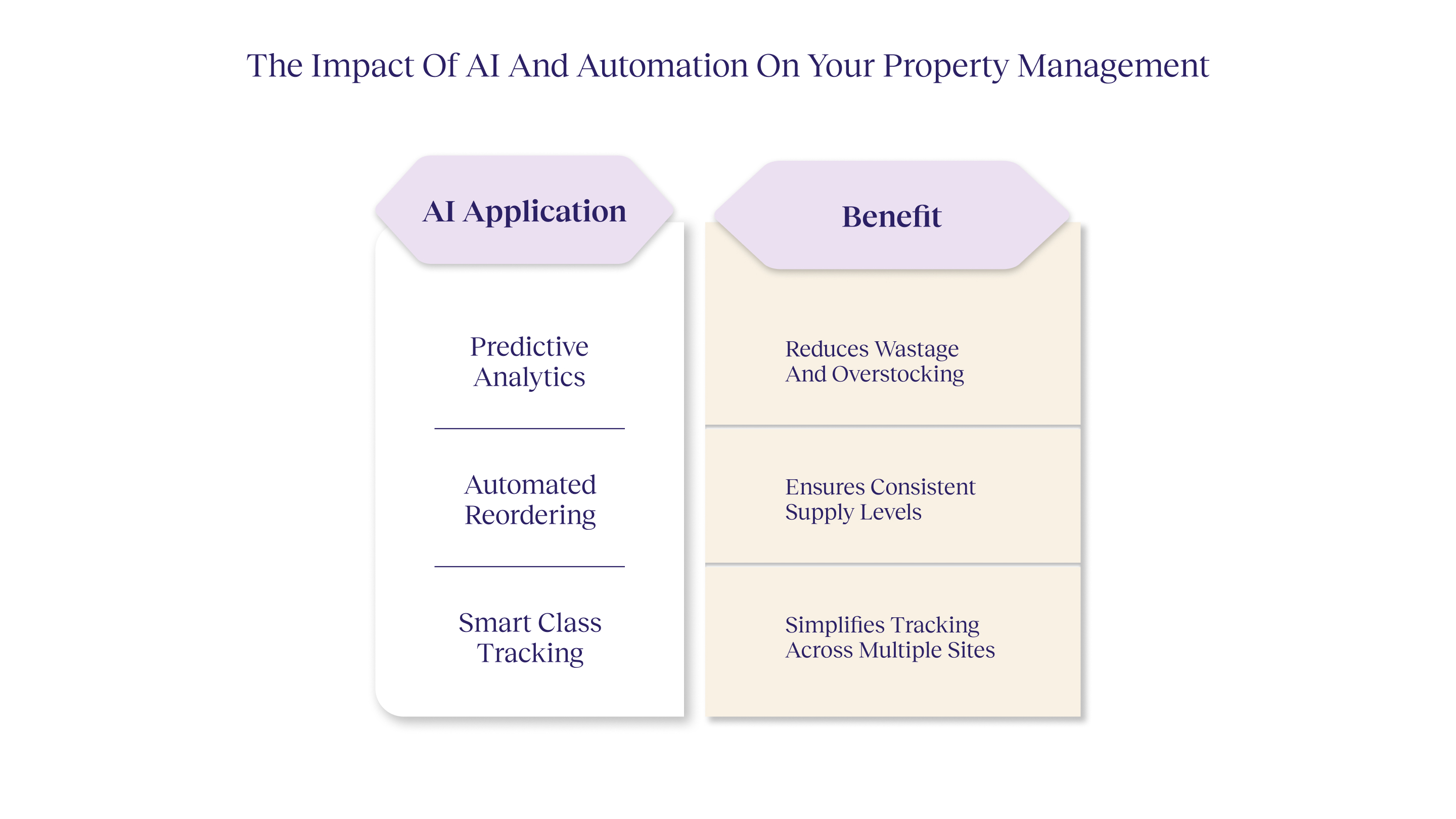
What these tools mean for you:
-
Fewer human errors
-
Time freed from repetitive tasks
-
Faster, more accurate decisions
-
Greater operational efficiency
Powerful stats you’ll want to know:
-
52% of property firms already use AI tools to enhance customer experience.
-
Experts estimate the property management AI market will reach $21.3 billion by 2025
-
Roughly 80% of property management companies plan to increase their AI investment over the next two years.
By tapping into AI now, you’re positioning yourself ahead of the curve, with stronger tenant satisfaction, lower costs, and a smarter management strategy.
2. Sustainability and Energy Efficiency Are Now Must-Haves
Environmental responsibility is no longer optional. Tenants increasingly seek eco-friendly homes, and integrating sustainable practices improves both your bottom line and asset value.
Here’s what you should know:
What You Should Know
-
Green-certified buildings command a 2–6% rent premium, with some selling for up to 16% more.
-
LEED-certified buildings typically use 25% less energy, cut carbon emissions by 34%, and reduce water use by 11%.
What you can do now:
-
Use recyclable, biodegradable, or low-impact supplies to reduce waste.
-
Upgrade to energy-efficient assets like LED lighting and smart thermostats.
-
Track usage and implement waste-reduction initiatives
Why it matters for your properties:
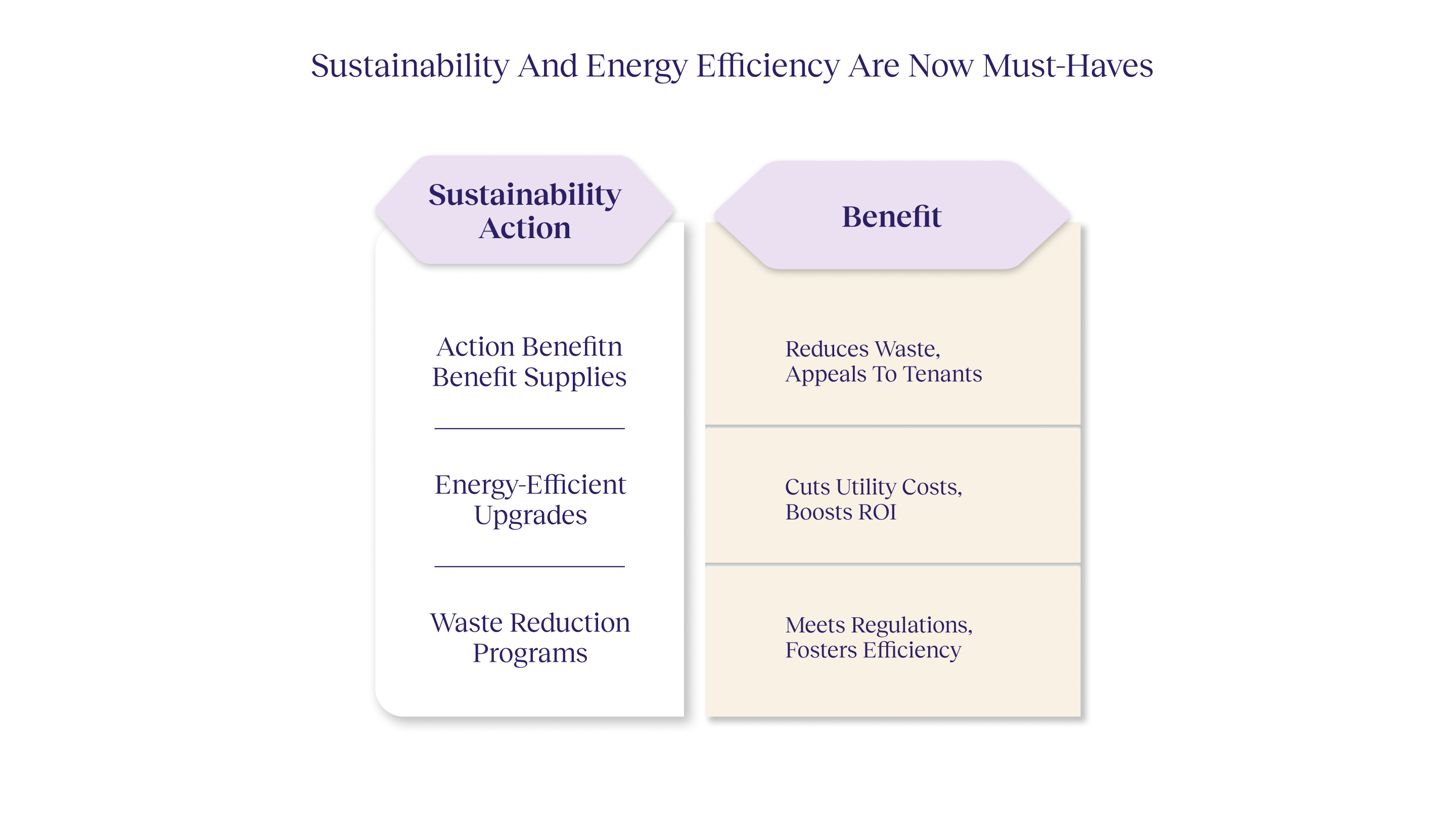
By taking these steps, you're positioning your properties to attract eco-conscious tenants, achieve higher rental returns, and comply with current and future regulations.
3. PropTech Is Revolutionizing How You Manage Properties
Technology is reshaping property management, making your operations more efficient and improving tenant satisfaction. Here are the top trends and what they mean for you:
Top Trends
-
Online Management Platforms: Approximately 85% of property managers report that adopting technology has increased their efficiency and productivity.
-
Automated Rent Payments: The percentage of online rent payments has grown by 18% in the past year.
PropTech Snapshot: Then vs Now
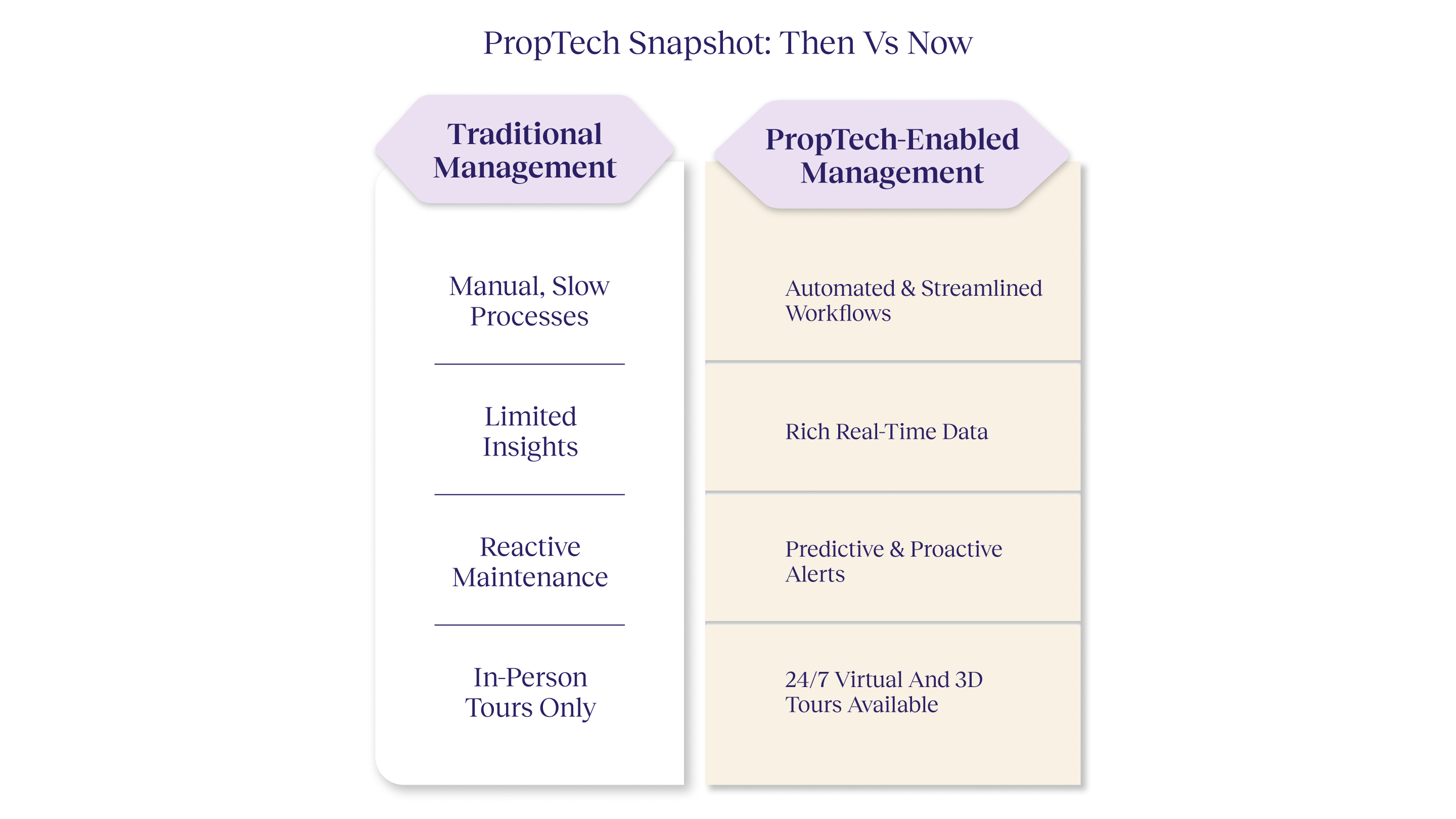
Why It Matters to You
-
Efficiency and accuracy: PropTech saves time and reduces human error.
-
Higher engagement: Listings with virtual tours attract almost 50% more interest.
-
Tenant satisfaction: Increasing expectations around digital payments highlight the need for online rent options.
Also Read: Why Real Estate Agents Are Turning to Property Sales Platforms to Boost Efficiency
Integrating PropTech not only modernizes how you manage but also makes your properties more appealing and operations smoother.
4. Adjusting to the New Workforce: Remote and Hybrid Work Effects
With more businesses adopting remote and hybrid models, commercial property demand is shifting.
What this means for you:
-
Demand grows for flexible office spaces with shorter leases and adaptable layouts.
-
Traditional long-term office leases face higher vacancy rates.
-
Co-working and serviced offices are gaining popularity.
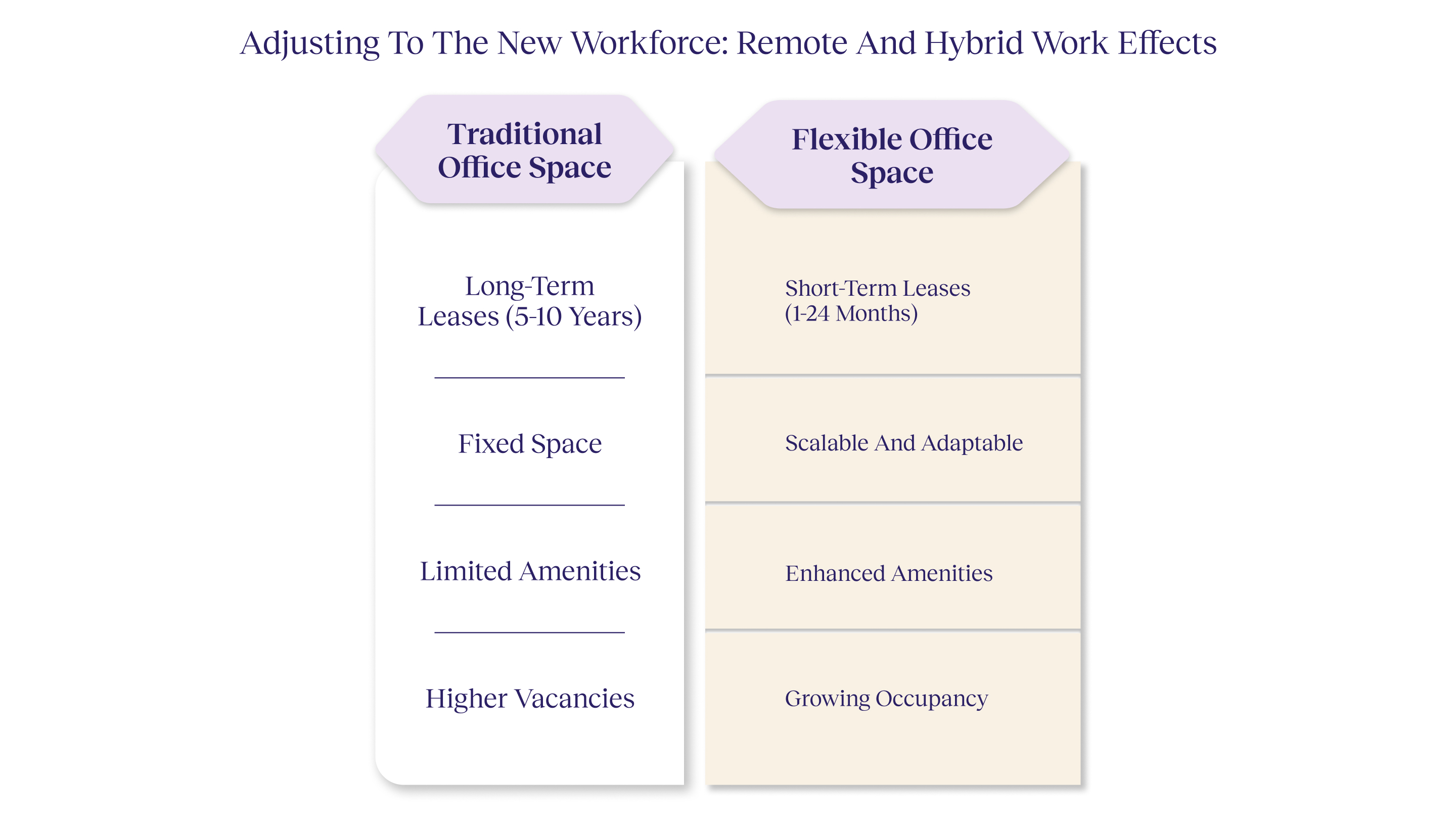
To stay competitive, consider offering flexible office solutions that match changing tenant preferences.
5. Build-to-Rent (BTR) Developments Are On the Rise
BTR properties provide renters with a home-like experience without the long-term commitment, attracting younger and urban tenants.
Benefits for you:
-
Stable, predictable rental income streams.
-
Modern amenities that appeal to today’s renters.
-
Typically lower vacancy rates compared to traditional rentals.
-
Better control over unit quality and consistency.
Tracking emerging BTR trends ensures you’re positioned to capitalize on this growing market segment.
6. Using Data Analytics for Smarter Decisions
Using data analytics lets you make informed, fast decisions that improve your portfolio’s performance.
-
Predictive analytics forecasts trends and risks, reducing guesswork.
-
Automated data collection replaces manual efforts, saving time.
- Real-time market insights help you adjust strategies quickly.
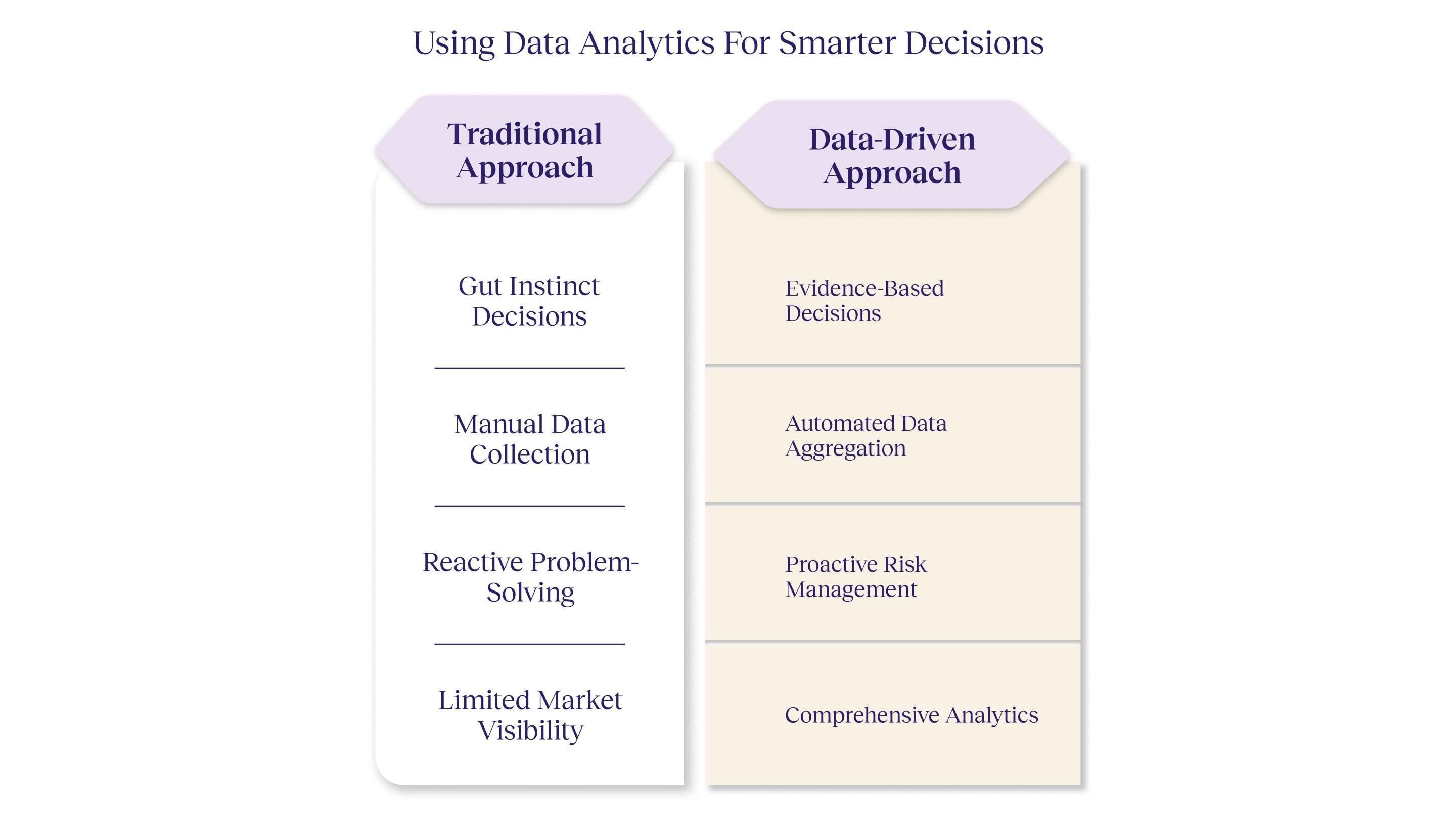
Adopting data-driven methods helps you mitigate risks and seize opportunities effectively.
7. Enhancing Tenant Experience with Smart Tech
Modern tenants, especially Gen Z, expect technology-enabled services:
-
Smart home devices (thermostats, locks, lighting) improve comfort and energy efficiency.
-
AI-powered maintenance tools allow easy reporting and faster fixes.
- Online communication platforms simplify document access and tenant interaction.
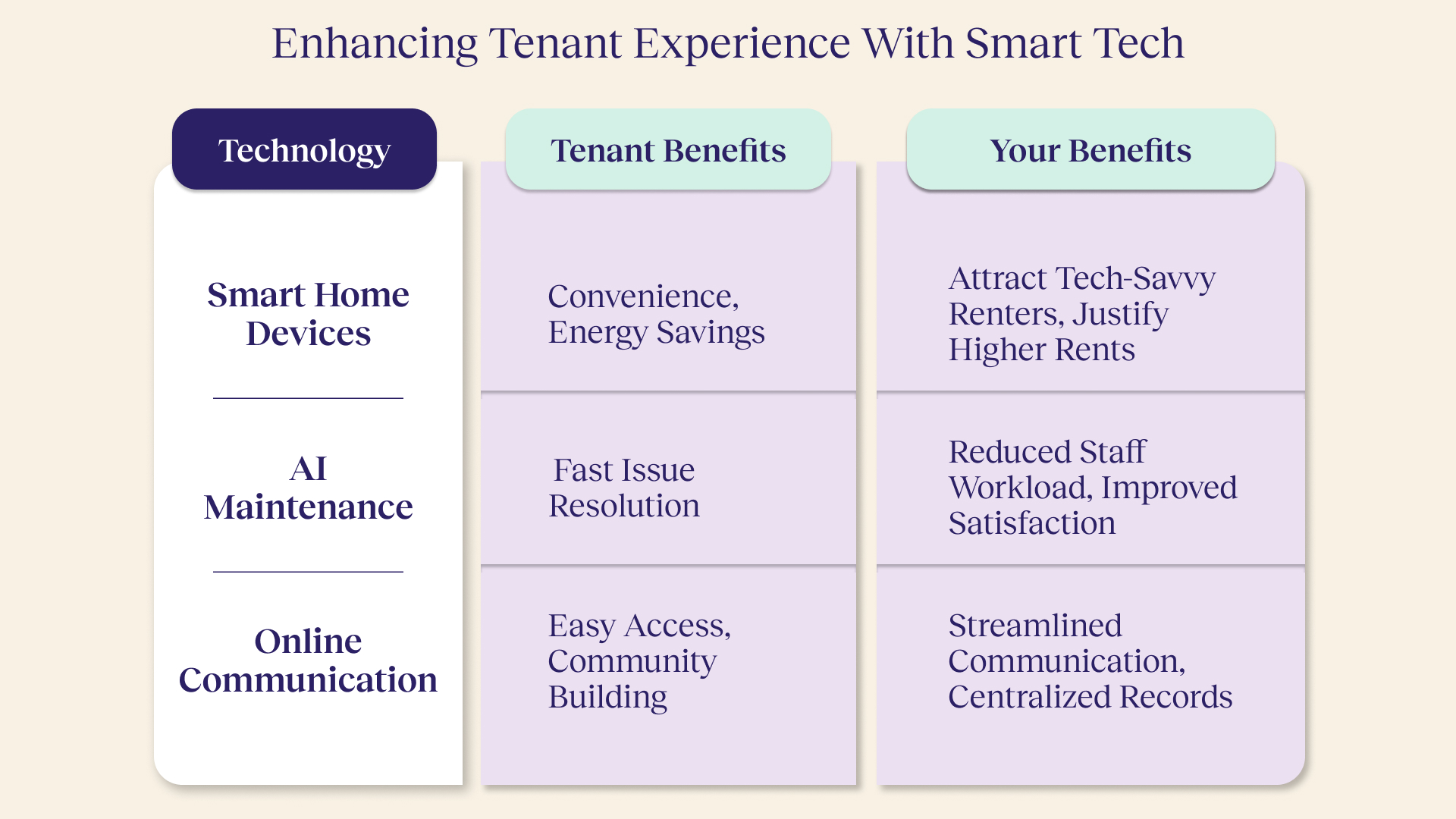
Embracing these tools elevates tenant satisfaction and sets your properties apart.
8. Staying Compliant Amid Changing Regulations
Regulations around data security, sustainability, and tenant rights are tightening.
To stay compliant:
-
Regularly update policies and train staff on new rules.
-
Use strong data security measures like multi-factor authentication.
-
Proactively adopt green practices to meet evolving environmental standards.
This approach protects your business and builds trust with tenants and vendors.
9. Flexibility and Adaptability Will Define Success
The property management industry is evolving fast. Your ability to adapt strategies, adopt new technologies, and respond to market shifts will determine your success.
Focus on:
-
Embracing innovative tools and sustainable practices.
In a 2023 survey by the National Multifamily Housing Council (NMHC), 72% of property managers reported that technology adoption improved their operational efficiency.
-
Offering flexible leasing and workspace solutions.
CBRE’s Global Flex Office Report 2023 states flexible workspace demand grew 28% globally, as hybrid work patterns shift leasing preferences.
Being proactive today will help you stay ahead of challenges and opportunities tomorrow.
10. Cybersecurity in Property Management
As property management becomes more digital, protecting tenant data and company systems is critical. Cyberattacks targeting real estate firms are rising, making cybersecurity a top priority.
What to consider:
-
Implement multi-factor authentication and regular software updates.
-
Train your team on phishing and cyber threat awareness.
-
Use secure platforms for payment processing and tenant communication.
Strong cybersecurity builds tenant trust and prevents costly data breaches.
11. The Rise of Short-Term Rentals and Impact on Property Management
Short-term rental platforms continue to grow, influencing property management strategies. More landlords are exploring Airbnb and similar models, which require different management approaches.
Key points:
-
Higher turnover means increased maintenance and cleaning demands.
-
Dynamic pricing tools help maximize rental income.
-
Regulations around short-term rentals vary widely and must be closely followed.
Understanding this segment can help you diversify offerings and revenue streams.
12. The Importance of Community Building in Rentals
Creating a sense of community can improve tenant retention and satisfaction. Property managers who foster connections among residents often see longer leases and fewer vacancies.
Ideas to explore:
-
Organize events or online groups for tenants.
-
Use communication platforms to share updates and gather feedback.
-
Offer amenities or services that encourage interaction.
Investing in the community strengthens your property’s appeal.
Keep these trends in mind to make smart decisions that grow your management skills and business.
Also Read: Modern Solutions for Managing Retail Properties: From Leasing to Analytics
In the next section, let's look at some challenges you might face with the emerging industry trends.
Challenges Facing the Property Management Industry in 2025
As the property management industry evolves, new tools and trends bring plenty of opportunities—but they also introduce challenges that landlords and property managers need to stay on top of.
Here are some of the most pressing concerns going into 2025:
Managing Operating Costs
With rising material prices, labor costs, and energy expenses, keeping operating budgets in check has become harder. Property managers are under pressure to control costs without compromising the quality of service or maintenance.
Keeping Up with New Technology
Technology is moving fast, and while it offers a lot of benefits, it also requires time, training, and resources to implement properly.
For smaller teams or those managing multiple properties, staying current with tools like AI, PropTech platforms, or smart home tech can be difficult.
Regulatory Compliance
Staying compliant with updated regulations, whether related to tenant rights, building codes, or data privacy, is an ongoing responsibility. It’s not just about avoiding penalties; it’s about building trust and running a responsible business.
Protecting Data and Digital Systems
As more operations move online, the risk of cyberattacks grows. Landlords and property managers must take cybersecurity seriously, making sure tenant data, payment systems, and communication tools are secure and regularly updated.
Meeting Changing Tenant Expectations
Tenants now expect more, from easier ways to pay rent to faster maintenance responses and tech-enabled living spaces. Keeping up with these expectations can be demanding, but it’s increasingly linked to tenant satisfaction and retention.
Being aware of these challenges allows property managers to plan thoughtfully, make informed decisions, and maintain steady, effective operations
Next, let's look at how RIOO can be a collaborative partner among these emerging industry trends.
RIOO: Making Property Management Easier
As property management changes with new technology and shifting tenant needs, having the right tools makes all the difference. RIOO is built to help you stay ahead by simplifying how you manage properties and communities.
With RIOO, you can:
-
Set up and organize your properties and communities with detailed information, keeping everything clear and accessible.
-
Manage tenant communications, leases, and maintenance requests all in one place, matching today’s demand for seamless digital experiences.
-
Track appliances, licenses, and documents to meet evolving compliance and sustainability standards.
-
Adapt quickly with flexible tools that support different roles, from leasing teams to facility managers, helping your whole operation run smoothly.
RIOO helps you keep up with industry trends by making your day-to-day easier, so you can focus on growing your portfolio and meeting tenant expectations.
Conclusion
The property management industry is changing quickly. To keep up, you need tools that help you manage tasks efficiently, meet tenant expectations, and adjust to new challenges.
RIOO provides a platform that helps you organize your work, use data to make informed decisions, and handle daily responsibilities with ease. Whether you manage a small number of units or a large portfolio, RIOO supports your goals.
If you want to improve how you manage your properties, book a free demo today.
FAQs
1. What are the biggest trends shaping the property management industry in 2025?
Key trends include the rise of AI and automation, sustainability and energy efficiency, the growth of PropTech, shifts due to remote and hybrid work, and increased focus on tenant experience through smart technology.
2. How does AI improve property management?
AI helps by predicting inventory needs, automating routine tasks, improving tenant screening, and providing data-driven insights, which lead to fewer errors and more efficient operations.
3. Why is sustainability important in property management?
Sustainability attracts eco-conscious tenants, reduces operating costs through energy savings, and ensures compliance with tightening environmental regulations.
4. What is PropTech, and how does it affect property management?
PropTech refers to technology tools that streamline property management processes, like online rent payments, virtual tours, and automated maintenance tracking, improving both efficiency and tenant satisfaction.
5. How has the rise of remote and hybrid work impacted commercial property demand?
There is growing demand for flexible office spaces with shorter leases and adaptable layouts, while traditional long-term leases see higher vacancy rates.
6. How can RIOO help property managers adapt to these trends?
RIOO provides an all-in-one platform to set up and manage properties and communities, streamline tenant communications and maintenance, track compliance, and support different team roles—helping managers stay organized and responsive.












